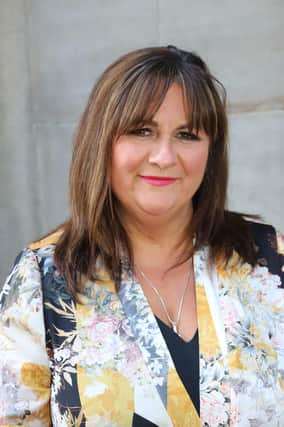World’s oldest travel body puts Scotland to the fore in promoting women – Alastair Dalton


Its first annual dinner was a very male affair, held in Glasgow’s Parisian-style Argyll Arcade for steamship passenger agents – with hardly any women present.
The dress code was very formal – tails – as the travel industry of 1923 gathered to toast the leading form of transport of the day, which provided the main link between Scotland and “the Dominions”.
Advertisement
Hide AdAdvertisement
Hide AdFast forward to the present and the Scottish Passenger Agents Association is celebrating its 90th such event as the world’s oldest travel body, with a very different gender split.
The association represents the country’s major travel agents “to address the issues and meet the challenges of the constantly changing travel marketplace”. It has often provided me with valuable insight about the sector.
In contrast to the 200 mostly men at that first dinner at the Sloane & Grosvenor restaurant, women were in the ascendant among several hundred at last week’s candlelit affair at the Crowne Plaza hotel in Glasgow.
It also marked the accession of the association’s first Scottish female president.
Joanne Dooey is also, surprisingly, only the third woman to hold the title, which is passed on every two years.
It has been a long road for women to win better representation within the association, with only 11 among the 150 guests at its first post-war dinner in 1947.
Then, in an extraordinary backward step 15 years later, the then president decided “ladies were not really welcome at the dinner” and the six attending were consigned to seats behind the top table.
The event retains its formality, with the top table being seated, traditional wedding-style, on a raised platform. They also process in to their seats behind a piper not just at the start of the evening, but again after a break between the dinner and speeches.
Advertisement
Hide AdAdvertisement
Hide AdThe names of the association’s past presidents since 1935 are proudly displayed, school dux style, on illuminated boards at one end of the room. One of those, Sandy MacPherson, even described the dinner as the “pre-eminent social event of the entire UK travel industry”.
This year’s gathering, which I was honoured to attend as a guest of the association, was a far more agreeable affair than some of the still male-dominated dinners I have been invited to in the past.
A few other long-standing transport bodies, which should remain nameless, have seen fit to invite after-dinner speakers whose material was peppered with outrageously sexist ‘humour’ demeaning to women.
Perhaps I should have walked out. I certainly hope I would if I ever found myself in that situation again. But I would prefer to think the #MeToo movement has hastened an end to that sort of behaviour. Let me know if I’m being over-optimistic.
The transport industry must champion the role of women. It’s essential that it’s seen as an attractive sector for girls to aspire to work in as they consider their career options.
Women account for a disproportionate number of bus and train passengers, so a greater female perspective is needed.
But, even more significantly, we need more female engineers and technicians to help keep transport moving when there is an impending shortage of such skills.
So, congratulations Joanne, and may another woman succeed you. It should be the norm – and right across transport.
